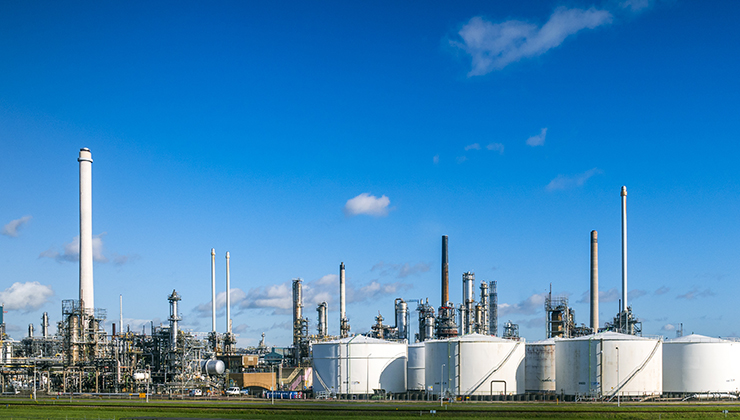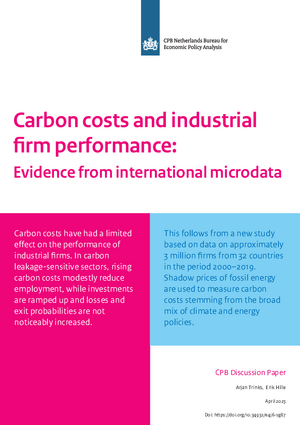Carbon costs and industrial firm performance: Evidence from international microdata
Climate policy hardly harms firms

The study does find a limited reduction in employment. Nevertheless, a large number of firms ramped up their investments in response to higher carbon costs. Carbon costs have hardly had any influence on the likelihood that a firm will cease operations.
The effects differ greatly between firms and branches. The decline in employment is particularly evident in capital-intensive and small firms in mining, cement, and basic metals. Remarkably though, in such sectors it appears that firms actually increased their investments and that productivity improved for a large group of firms.
The study looks at the carbon costs faced by firms through various policy instruments. Examples include explicit carbon costs of a carbon tax or emissions trading system, but also implicit ways in which emitting carbon is made financially less attractive, such as fuel excise taxes, subsidies, standards, and restrictions. A common argument in response to the higher costs of emitting carbon is that firms would look elsewhere. This view is questioned by this study.
This study uses production data and data on the production activity and performance of approximately 3 million industrial firms from 15 different sectors in 32 countries during the period 2000–2019.
Contacts

Downloads
Authors

